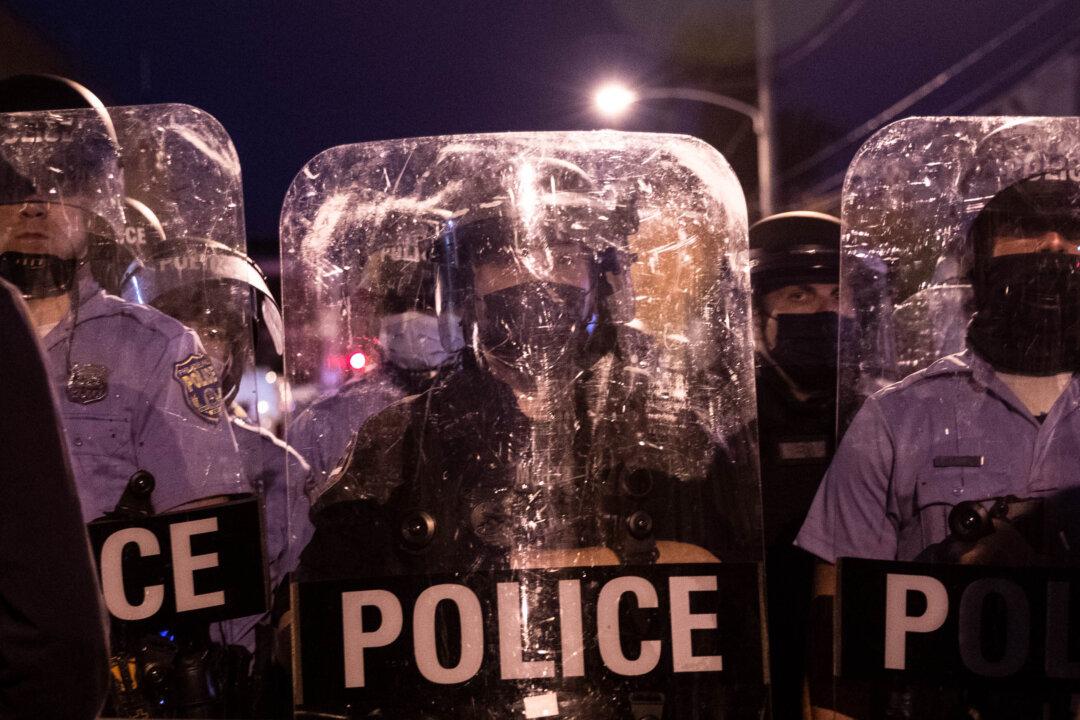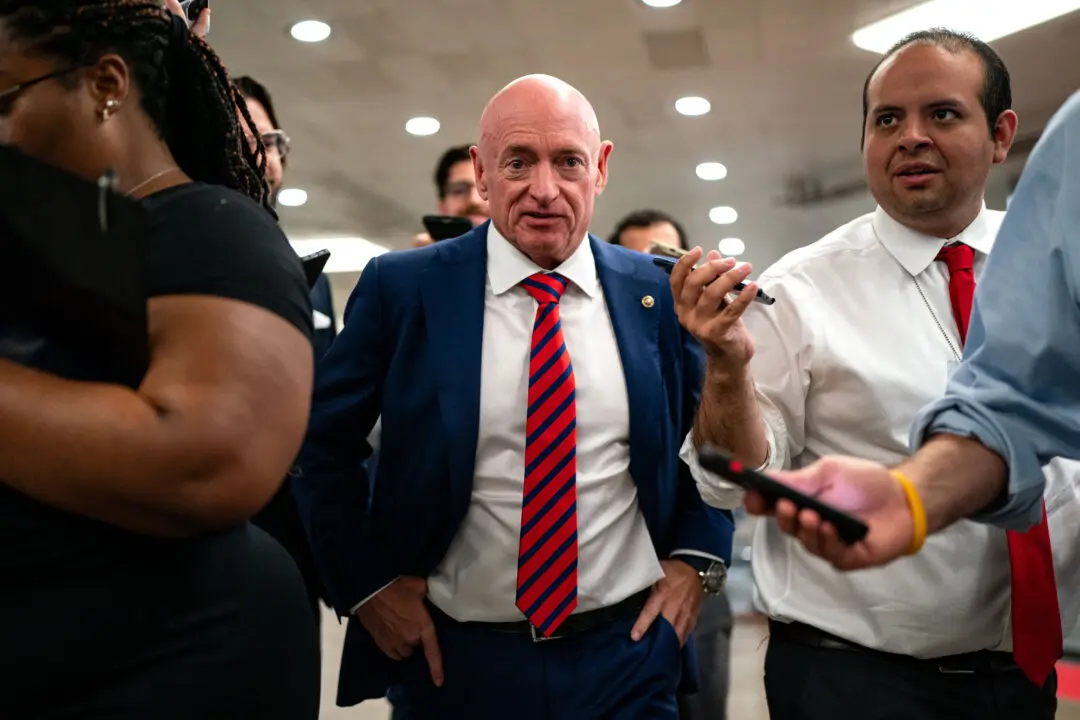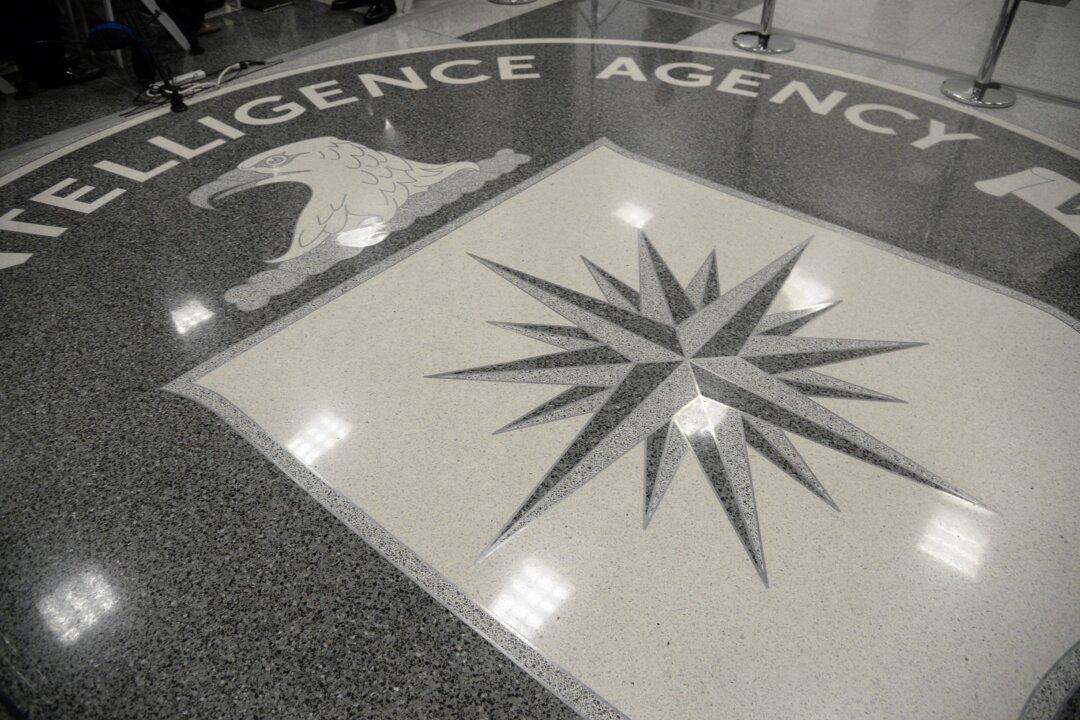The city of Philadelphia, Pennsylvania, has agreed to pay $9.25 million to about 350 people who were injured when police fired tear gas and rubber bullets to break up protests following George Floyd’s death in Minneapolis Police custody.
The payout agreement settles a group of four lawsuits against the city, over actions Philadelphia Police officers took to disperse and arrest protesters in between May 31 and June 1, 2020, as protests and riots spread throughout the country following Floyd’s death on May 25, 2020. The group of lawsuits—Weltch, et al. v. City of Philadelphia, Hough, et al. v City of Philadelphia, Smith et al. v City of Philadelphia and Zolitor, et al. v. City of Philadelphia—described police firing tear gas canisters, flashbangs, and rubber bullets at people in West Philadelphia.





